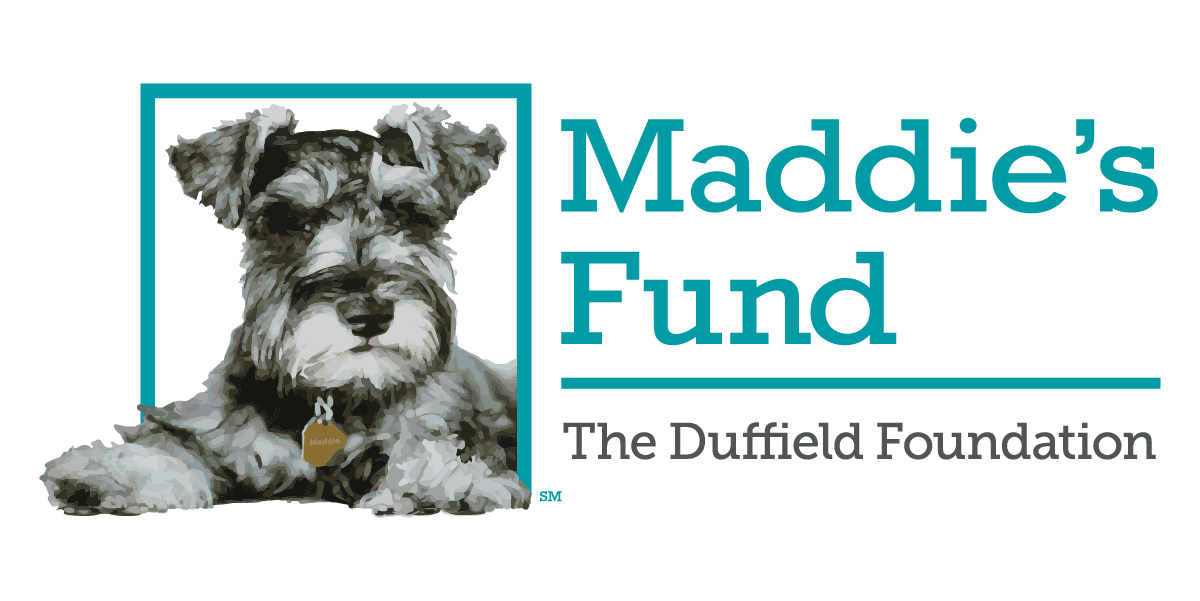
One Touch Heartworm Research
A new study starting in August 2025 has the potential to change treatment of heartworm infected dogs. The study is a partnership between Toronto Humane Society, the Shelter Medicine Program at the University of Florida, and The Inner Pup and is made possible by a grant from Maddie’s Fund.
Heartworm disease – A challenge for shelters and low-income pet owners
Canine heartworm is present in all 50 states in the US (as well as Canada and many other countries) but is most prevalent where mosquitoes capable of transmitting infection thrive in the warm and humid climate of the South. Since heartworm disease occurs most frequently in dogs with poor access to preventive healthcare, it is most common in shelter dogs and dogs in low-income communities.
The longer dogs carry heartworms, the more damage to the lungs and heart occurs. Disease may be undetected in the early stages, but progresses to cough, exercise intolerance, and in some cases, heart failure and death. Heartworms are transmitted to other dogs via mosquitoes.
The Consequences
Timely treatment improves quality of life and decreases the likelihood of life-long heart and lung damage caused by heartworm disease. The American Heartworm Society recommends a melarsomine based treatment protocol often considered the safest and most successful. However, this treatment course is expensive, requires multiple veterinary visits, and demands months of strict exercise restriction.
Alternative evidence-based treatments, (so-called “slow-kill”) can be used when melarsomine is not a viable option. Our study aims to provide more data on this type of treatment, with the goal of making heartworm treatment simpler and more accessible.
Current Treatment Options
and Challenges
Our study will provide free “slow-kill” treatment for dogs that qualify. They will be closely monitored throughout the study. All treatment and testing are free, and your dog will also be given free flea treatment. There is a very high chance that your dog will be heartworm-free at the end of the study. The Inner Pup and others have seen success rates of over 95% using similar protocols. The study will also help many other dogs get the treatment they need.
How can this study help your dog?
Can a new condensed heartworm treatment plan measure up to traditional protocols?
Our research team developed a prospective clinical trial comparing the safety and efficacy of three treatment protocols. The three year study, “One Touch Heartworm Treatment,” is made possible by a grant from Maddie’s Fund, which supports research to increase access to veterinary care. In developing the protocol, the researchers kept some key goals in mind:
- Match the safety of traditional protocols
- Achieve high treatment success
- Minimize the number of medical treatments for staff to carry out
- Contain treatment costs as much as possible
- Potentially identify an effective treatment that could be delivered in one veterinary visit
Dogs are randomly assigned to a heartworm treatment protocol. The protocols include the same medications but with different timing and frequency. Heartworm tests begin in month six and continue periodically until the dog is heartworm negative. If the dog is still heartworm positive in month 18, the dog is referred for traditional melarsomine treatment, free of charge.
Meet the Team
Dr. Hannah Hegwood
Research Associate
Dr. Mike Greenberg
Veterinary Supervisor
Dr. Linda Jacobson
Toronto Humane Society
Dr. Julie Levy
Shelter Medicine Program at UF
Gene Goldring
The Inner Pup
Roni Murphy
The Inner Pup

















